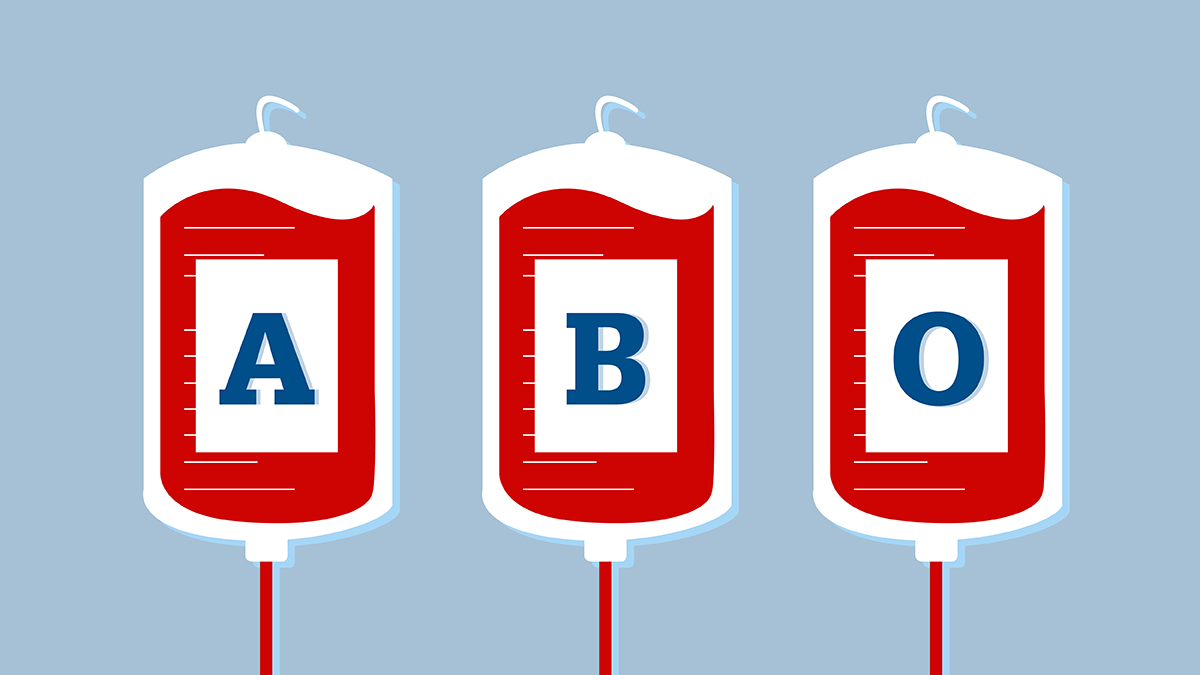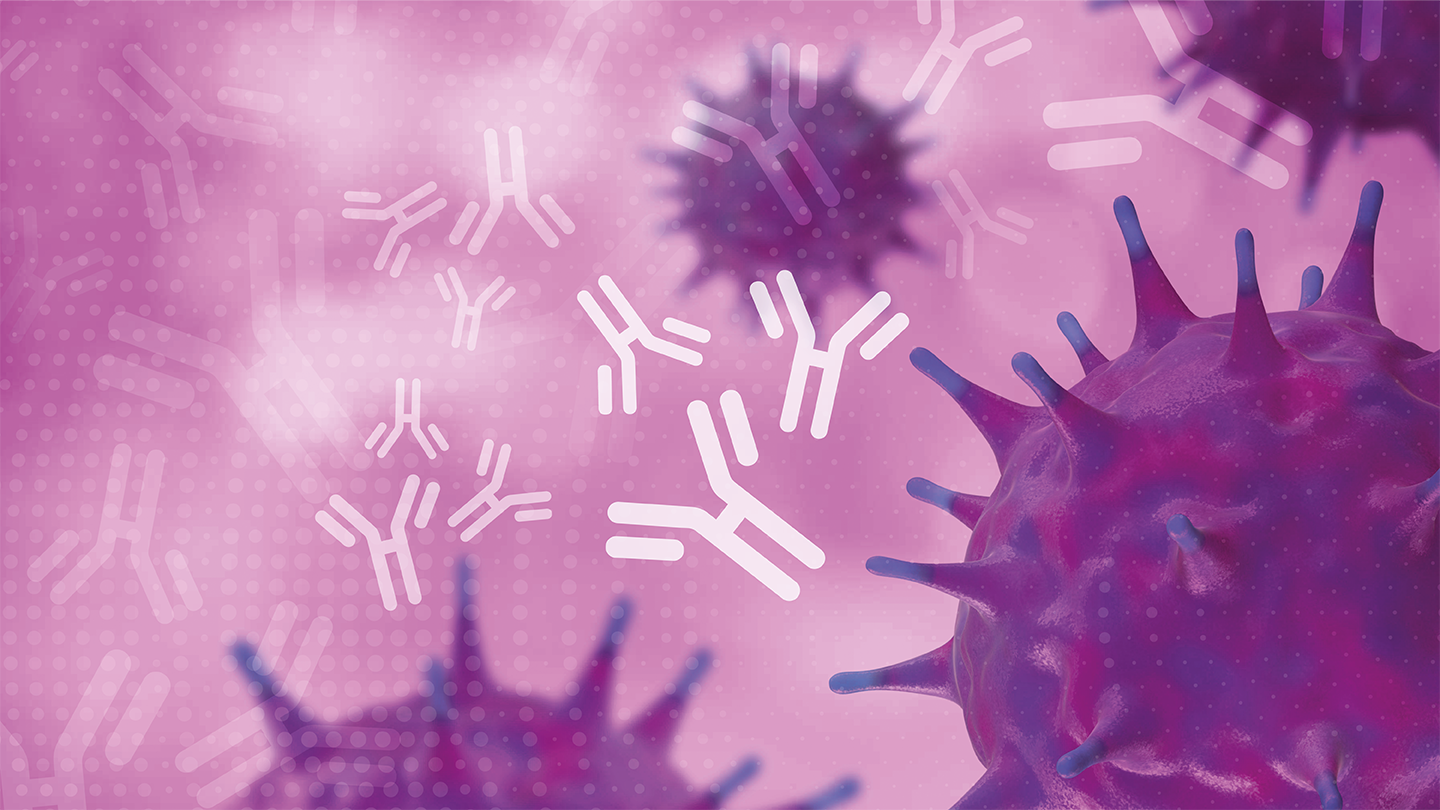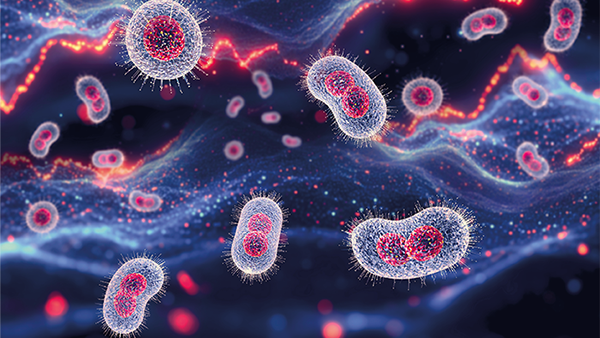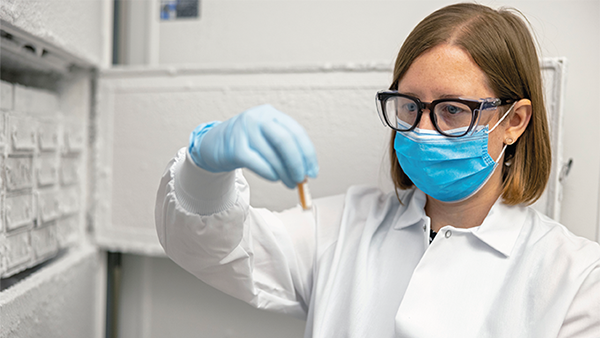Bound by Blood
Individuals with blood group A have an increased risk of SARS-CoV-2 infection – here’s why
What makes individuals more or less susceptible to SARS-CoV-2 infection? The answer is highly complex; we recently explored the secrets behind the super dodgers. Other scientists have found that ABO(H) blood group antigens increase the risk, with many studies demonstrating an association between people with blood group A and the likelihood of SARS-CoV-2 infection compared with those with blood group O. However, the mechanisms behind the link are not yet fully understood.
In a new study, researchers uncovered how blood group impacts the risk of SARS-CoV-2 infection (1). Sean Stowell, senior author of the study, explains: “We demonstrated that the virus actually interacts with the blood group A antigen, which is a carbohydrate structure that decorates the cell surface. This interaction enhances the ability of the virus to infect blood group A cells when compared with blood group O cells, providing a direct link between blood group A and an increased likelihood of SARS-CoV-2 infection.”
When asked about the specific mechanisms behind this link, Stowell says, “The SARS-CoV-2 receptor binding domain (RBD) is specialized in its ability to bind to ACE2 to enter our cells, but our results demonstrate that the RBD also binds to the carbohydrate blood group A. Unlike ACE2, engagement of blood group A does not directly facilitate SARS-CoV-2 infection. Instead, binding to blood group A makes the cell surface a little stickier for the virus, which ultimately increases the chance that it will find ACE2 and infect our cells.”
The finding is simple and elegant – but arriving at the answer was not straightforward. “As blood group antigens are complex carbohydrate structures that decorate the cell surface, it can be difficult to specifically manipulate these structures in meaningful ways to study their function. This is partly because they are generated by a series of enzymes instead of being directly encoded by DNA,” says Stowell. “As a result, to study the possible impact of ABO blood group on the risk that a cell could become infected by SARS-CoV-2, we had to engineer cells to express blood group antigens while also expressing the same levels of the primary SARS-CoV-2 receptor, ACE2.”
Other research in Stowell’s group is now focusing on blood group antigens beyond blood groups A and O, which Stowell believes will strengthen our ability to predict the impact of blood group expression on infection as additional SARS-CoV-2 variants emerge. And the link to infection susceptibility doesn’t end there. “Blood group antigens can differentially influence risk of other types of infection; for example, individuals who are blood group O are more likely to develop severe cholera than those who are blood group A. Therefore, differences in the prevalence of certain types of infections may have partly influenced the distribution of distinct ABO blood group frequencies around the world,” says Stowell. “ABO blood group antigens were the first polymorphisms described in the human population – discovered over 120 years ago – and it is intriguing that these antigens continue to play such a unique role in infectious risk.”
Reference
- SC Wu et al., “Blood Group A Enhances SARS-CoV-2 Infection,” Blood, [Online ahead of print] (2023). PMID: 37367252.





